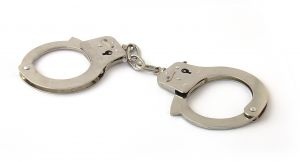 Simply put, an arraignment is your first court appearance after you have been arrested for a crime. You may or may not still be in police custody at the time of your arraignment. During your arraignment your criminal defense attorney will receive evidence from the district attorney. This evidence is called “discovery” in the legal world, and this will be the evidence the district attorney uses to convict a defendant.
Simply put, an arraignment is your first court appearance after you have been arrested for a crime. You may or may not still be in police custody at the time of your arraignment. During your arraignment your criminal defense attorney will receive evidence from the district attorney. This evidence is called “discovery” in the legal world, and this will be the evidence the district attorney uses to convict a defendant.
Additionally, the defendant and their defense attorney will appear before the Judge to enter a plea, and agree or disagree to waive certain constitutional rights. First is the plea. If the defendant enters a plea of guilty, the case is basically over. Therefore, many defendants plead “not guilty.” Next the Judge will ask if the defendant wishes to have the formal charges read in court. This is a mere formality. If the defense attorney has already obtained the discovery file from the district attorney, the formal charge is known, and therefore many defendants choose to waive this right in order to save time.
The Judge will then ask if the defendant waives their right to a speedy trial, as guaranteed by the Constitution. Many defendants will waive this right in order to allow their attorney more time to prepare favorable evidence and review unfavorable evidence.
Finally, the court, defense attorney, and district attorney will set a future date for what is known as a Pre Trial Conference. Depending on the schedule of the court, this conference may take place within two weeks or two months.
If you have a criminal arraignment in the future, contact our Bay Area Criminal Defense Law Firm to discuss your representation. Click here to email us a question.
